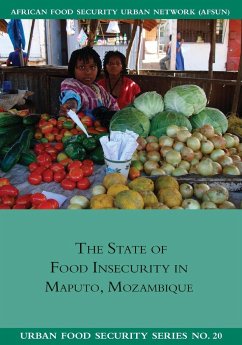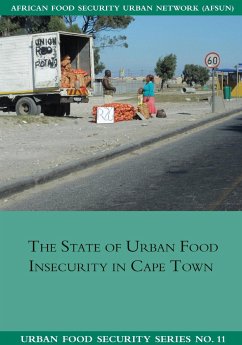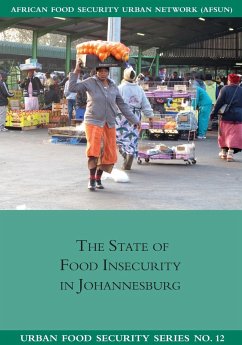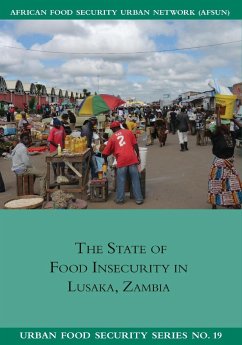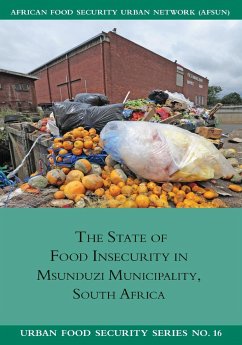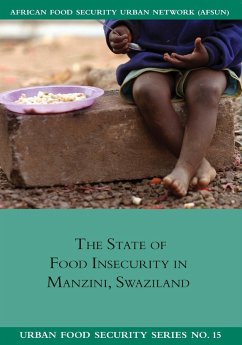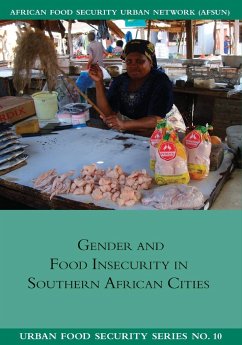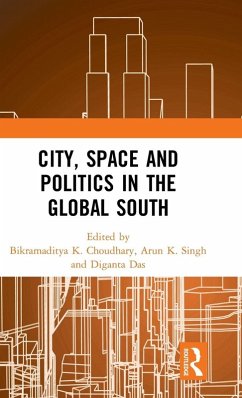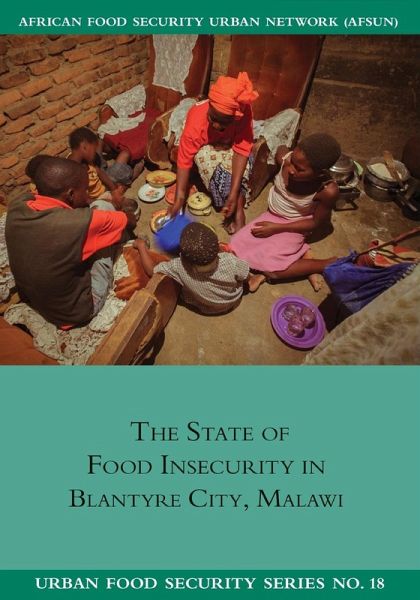
The State of Food Insecurity in Blantyre City, Malawi
Versandkostenfrei!
Versandfertig in 1-2 Wochen
29,99 €
inkl. MwSt.

PAYBACK Punkte
15 °P sammeln!
Chronic food insecurity is considered to be one of the most important challenges facing the people and government of Malawi. Most attention tends to be given to the rural areas where the majority of the population live and where the prevalence of food insecurity is highest. However, Malawi is urbanizing at a rapid rate and those who move to the cities do not automatically become food secure. Urban food insecurity is likely to increase and therefore it is important for policy-makers to begin to think about this issue. AFSUN's study of food insecurity in the city of Blantyre, Malawi's industrial...
Chronic food insecurity is considered to be one of the most important challenges facing the people and government of Malawi. Most attention tends to be given to the rural areas where the majority of the population live and where the prevalence of food insecurity is highest. However, Malawi is urbanizing at a rapid rate and those who move to the cities do not automatically become food secure. Urban food insecurity is likely to increase and therefore it is important for policy-makers to begin to think about this issue. AFSUN's study of food insecurity in the city of Blantyre, Malawi's industrial hub, formed part of its baseline survey of 11 Southern African cities. The study established that household dietary diversity is very low with most consuming a monotonous diet dominated by grain foods, especially maize. While the dependence on maize and its availability on the market means that absolute levels of food insecurity are lower here than in many other cities surveyed by AFSUN, there is also a clear seasonality to food security that coincides with the rural agricultural cycle. When maize prices rise, households immediately feel the pinch and levels of insecurity rise. Female-centred households, households with large family sizes, households that have lost a breadwinner through death, households with a sick member, and low-income households are more food insecure than the rest.



